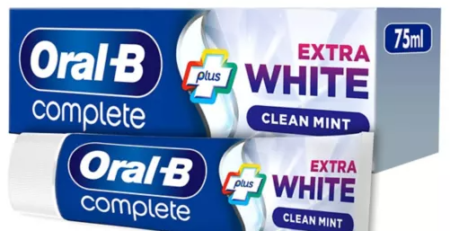The Rise of Natural Toothpastes: Are natural toothpastes Better for You?
Introduction
Rise of Natural Toothpastes – Toothpastes.co.uk
Natural toothpastes are a type of toothpaste that contain natural ingredients derived from plants, minerals, or animals.
They claim to offer various benefits for oral health and wellness, such as being more gentle, eco-friendly, or holistic.
But are they better for you than regular toothpastes? And what are the pros and cons of using natural toothpastes?
In this article, we will explore the rise of natural toothpastes and how they compare with regular toothpastes.
We will also review some of the popular products on the market and provide some tips on how to choose the best toothpaste for your needs and preferences.
What are natural toothpastes?
Natural toothpastes are a type of toothpaste that contain natural ingredients derived from plants, minerals, or animals.
Some examples of natural ingredients are:
– Coconut oil: This is a plant-based oil that has antibacterial, anti-inflammatory, and whitening properties. It can help kill harmful bacteria in your mouth, reduce plaque and gingivitis, and whiten your teeth.
– Baking soda: This is a mineral-based powder that has abrasive and deodorising properties. It can help scrub away surface stains and plaque from your teeth and neutralise the Odours in your mouth.
– Xylitol: This is a plant-based sweetener that has anticariogenic and remineralising properties. It can help prevent cavities by inhibiting the growth of bacteria that cause decay and by enhancing the uptake of calcium and phosphate into your enamel.
– Aloe vera: This is a plant-based gel that has soothing and healing properties. It can help reduce inflammation, irritation, or bleeding in your gums and promote wound healing.
– Propolis: This is an animal-based resin that has antibacterial, antifungal, and antioxidant properties. It can help fight infections, prevent plaque and tartar buildup, and protect your teeth from damage.
Natural toothpastes may also contain other ingredients such as herbs, spices, fruits, or oils that can provide various benefits for oral health and wellness, such as whitening, freshening, soothing, or healing.
Why are natural toothpastes becoming more popular?
Natural toothpastes are becoming more popular for several reasons:
– They may appeal to people who are looking for more natural and eco-friendly alternatives to regular toothpastes, as they contain fewer chemicals and artificial ingredients. Some of them are also vegan, cruelty-free, or organic.
– They may appeal to people who have sensitive teeth or gums, as they may be more gentle or soothing than regular toothpastes. They may also contain ingredients that can help reduce sensitivity or pain, such as mint, sage, or hemp oil.
– They may appeal to people who have specific oral health goals or preferences, such as whitening their teeth, freshening their breath, or improving their overall wellness. They may also offer unique flavours and aromas that can enhance their brushing experience.
What are the pros and cons of natural toothpastes?
Natural toothpastes have their own advantages and disadvantages when it comes to oral health and wellness. Here are some of them:
– The pros of using natural toothpastes are:
– They may be more natural and eco-friendly than regular toothpastes, as they contain fewer chemicals and artificial ingredients. Some of them are also vegan, cruelty-free, or organic.
– They may have unique flavours and aromas that can enhance your brushing experience and make your breath smell fresh and pleasant.
– They may contain ingredients that have antibacterial, anti-inflammatory, or antioxidant properties that can help fight plaque, gingivitis, or bad breath. For example, tea tree oil, neem, or clove can help kill harmful bacteria in your mouth; aloe vera, chamomile, or calendula can help soothe irritated gums; and turmeric, charcoal, or coconut oil can help whiten your teeth.
– The cons of using natural toothpastes are:
– They may not be as effective as regular toothpastes in preventing cavities or remineralising enamel, as they may not contain fluoride or other essential minerals. Fluoride is a mineral that strengthens enamel and protects teeth from decay. It is widely accepted as the most effective ingredient for preventing cavities.
– They may not be regulated or tested for safety or quality by official authorities, as they may not fall under the same standards or requirements as regular toothpastes. This means that they may contain harmful contaminants or allergens that can cause adverse reactions or infections in some people.
– They may not be compatible with some dental work or treatments, such as braces, implants, fillings, or whitening. Some natural ingredients may stain or damage these materials or interfere with their effectiveness.
How to choose the best natural toothpaste for you?
There is no one-size-fits-all solution when it comes to choosing a natural toothpaste for you. Different products may suit different people depending on their oral conditions, goals, and preferences. Here are some tips on how to choose the best natural toothpaste for you:
– Consult your dentist: Your dentist can advise you on the most suitable toothpaste for your teeth and gums. They can also monitor the results and side effects of using any new toothpaste, especially if you have any existing dental problems or concerns.
– Check the ingredients: You should read the label of the toothpaste and see what ingredients it contains and how much of them are present. You should avoid any ingredients that you are allergic or sensitive to or that may harm your teeth or gums. You should also look for ingredients that can benefit your oral health, such as fluoride, minerals, or herbs.
– Try different products: You may need to try different products and see what works best for you and your teeth. You may also want to switch between different types of toothpastes depending on your needs or preferences. For example, you may use a natural toothpaste in the morning for a fresh breath and a regular toothpaste in the evening for cavity prevention.
Conclusion
Natural toothpastes are a type of toothpaste that contain natural ingredients derived from plants, minerals, or animals. They claim to offer various benefits for oral health and wellness, such as being more gentle, eco-friendly, or holistic. However, they may not be better for you than regular toothpastes, as they may not be as effective or safe as regular toothpastes.
The best way to choose a toothpaste for your oral health and wellness is to consult your dentist and follow their recommendations. They can advise you on the most suitable product or treatment for your teeth and gums and monitor the results and side effects. They can also help you maintain good oral hygiene and prevent further plaque and tartar buildup or damage to your teeth.





Leave a Reply